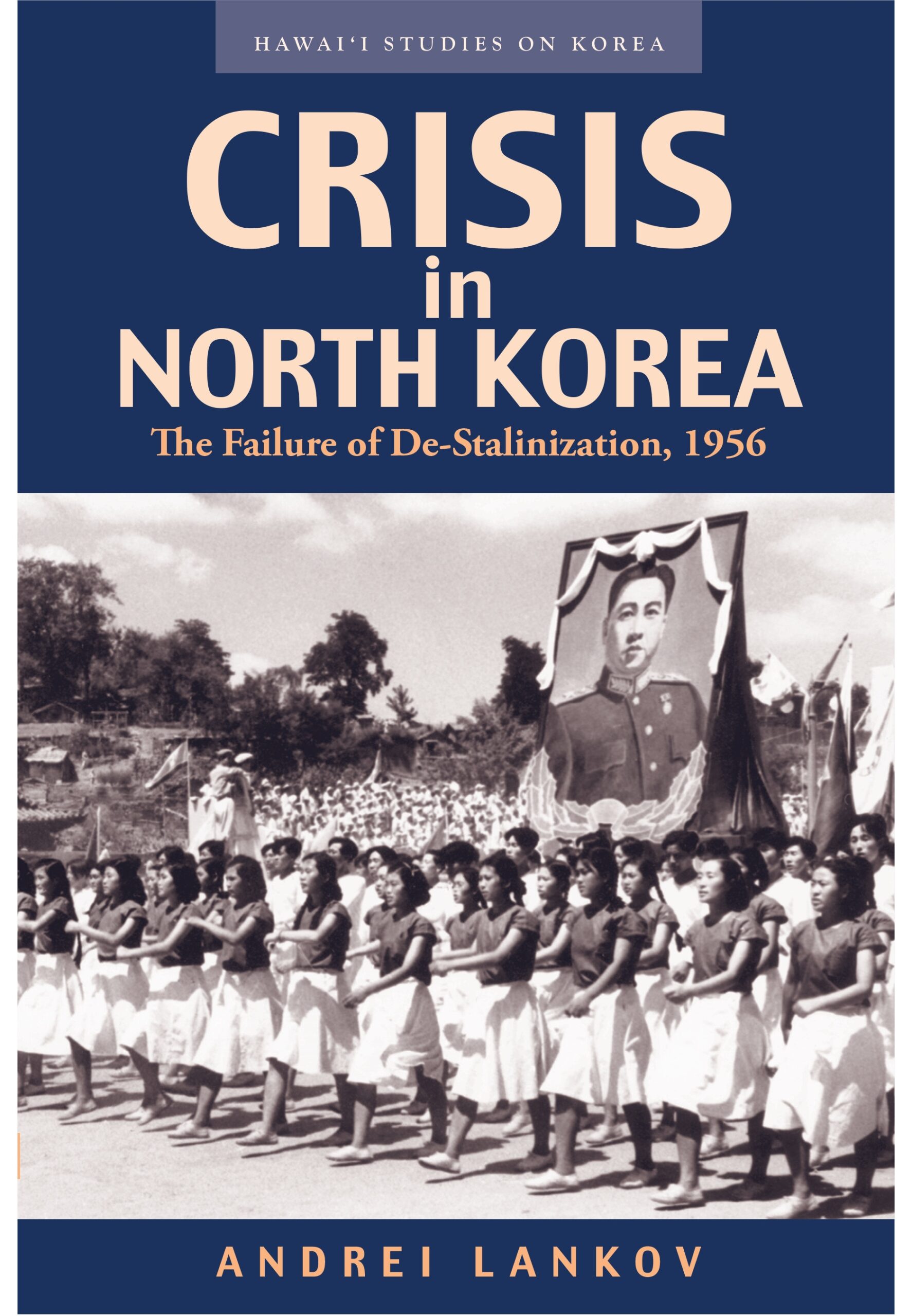Crisis in North Korea: The Failure of De-Stalinization, 1956
- About the Book
-
North Korea remains the most mysterious of all Communist countries. The acute shortage of available sources has made it a difficult subject of scholarship. Through his access to Soviet archival material made available only a decade ago, contemporary North Korean press accounts, and personal interviews, Andrei Lankov presents for the first time a detailed look at one of the turning points in North Korean history: the country’s unsuccessful attempts to de-Stalinize in the mid-1950s. He demonstrates that, contrary to common perception, North Korea was not a realm of undisturbed Stalinism; Kim Il Sung had to deal with a reformist opposition that was weak but present nevertheless.
Lankov traces the impact of Soviet reforms on North Korea, placing them in the context of contemporaneous political crises in Poland and Hungary. He documents the dissent among various social groups (intellectuals, students, party cadres) and their attempts to oust Kim in the unsuccessful “August plot” of 1956. His reconstruction of the Peng-Mikoyan visit of that year—the most dramatic Sino-Soviet intervention into Pyongyang politics—shows how it helped bring an end to purges of the opposition. The purges, however, resumed in less than a year as Kim skillfully began to distance himself from both Moscow and Beijing. The final chapters of this fascinating and revealing study deal with events of the late 1950s that eventually led to Kim’s version of “national Stalinism.” Lankov unearths data that, for the first time, allows us to estimate the scale and character of North Korea’s Great Purge.
Meticulously researched and cogently argued, Crisis in North Korea is a must-read for students and scholars of Korea and anyone interested in political leadership and personality cults, regime transition, and communist politics.
- About the Author(s)
-
Andrei Lankov, Author
- Reviews and Endorsements
-
- In this important new book, the Russian-trained scholar Andrei Lankov examines the critical historical period, the mid-1950s, when the shape of the North Korean political system was formed. This book is important for two reasons—because it is the first thorough discussion of the events leading up to the effective removal of any opposition to the Kim Il Sung group, and because it uses sources which until recently were not readily accessible. . . . These sources give us a far better historical and chronological understanding of the events and players during this crucial period than we could have had before. . . . This well-written book will be of value beyond the area of Korean Studies to anyone interested in the history of communism and political systems, as well as the history of current affairs.
—Asian Affairs (June 2005) - What Lankov finds certainly adds a great deal to our knowledge of North Korean history, including some truly fascinating information.
—American Historical Review (5:110, December 2005)
- In this important new book, the Russian-trained scholar Andrei Lankov examines the critical historical period, the mid-1950s, when the shape of the North Korean political system was formed. This book is important for two reasons—because it is the first thorough discussion of the events leading up to the effective removal of any opposition to the Kim Il Sung group, and because it uses sources which until recently were not readily accessible. . . . These sources give us a far better historical and chronological understanding of the events and players during this crucial period than we could have had before. . . . This well-written book will be of value beyond the area of Korean Studies to anyone interested in the history of communism and political systems, as well as the history of current affairs.
- Supporting Resources
-










